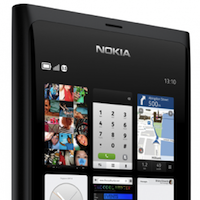
Nokia will only sell Windows Phones in North America, nothing else
Finnish mobile phone leader Nokia will be dealing exclusively in Windows Phones in the United States, according to several reports on Tuesday. The company's devices that run other mobile operating systems: S40, Symbian, and Meego, will not be sold in the North American market at all.
In an exclusive interview with AllThingsD's Ina Fried, Nokia Inc. President Chris Weber said the company will be putting all its strength into Windows Phone in North America, and that the continent is essentially "out of the Symbian…S40 business."
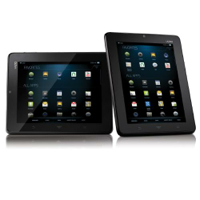
Can Vizio snatch the Android tablet biz like it did with LCD TVs?
Four years ago, California-based electronics company Vizio rocketed from virtual anonymity to the position of number one LCD TV maker in the United States ahead of much larger international rivals Samsung, Phillips, Sharp, and Sony. Now, Vizio is hoping to have that same impact in the field of Android tablets with the new 8" Vizio Tablet, officially launched to all retail channels late Monday evening.
Vizio's breakthrough success in the LCD TV market was largely thanks to the affordability and widespread availability of its products through partnerships with big box retailers Costco and Sam's Club. Naturally, this formula will be applied to the Vizio Tablet too, and customers will be able to pick one up at Costco Wholesale, Sam's Club, Walmart, Target, BJ's Wholesale, and Amazon.com for just $299.
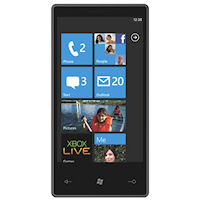
Windows Phone evangelist quits Microsoft, says he'll still use Windows Phone
Charlie Kindel, a 21-year Microsoft veteran, and most recently General Manager of Windows Phone developer experience, publicly posted his departure from the company to work on his "super secret stealth startup," based in the Seattle Area. For the last two and a half years, Kindel led the team that built the current Windows Phone application platform, and was responsible for much of the evangelism and outreach that accompanied the complete revitalization of Microsoft's mobile ecosystem.
There is no doubt that the last two and a half years have brought the most drastic changes to Microsoft's approach to mobile operating systems. The long-running Windows Mobile came to a screeching halt at version 6.5 when it launched simultaneously with the new "Windows Phone" brand, which at the time, wasn't even an operating system yet.

Sony, Panasonic, Samsung team up to standardize active shutter 3D glasses
Consumer electronics companies Panasonic, Samsung, Sony and XPAND 3D (X6D Ltd.) announced on Monday that they have begun collaboration on a new standard for active shutter 3D glasses called the "Full HD 3D Glasses Initiative."
Even though electronics companies are pushing 3D as the next great frontier for cinematic, home theater, and video game-based entertainment, it's been pretty much a flop all around.

HTC to improve cloud sync for Sense-enabled devices
Taiwanese smartphone trailblazer HTC will be acquiring Seattle-based mobile Web services company Dashwire for approximately $18.5 million, Dashwire's key product offering is Dashworks, a licensable software platform that runs branded services on top of mobile operating systems.
HTC says it will use Dashwire's cloud sync and device set-up products in HTCSense.com, the cloud services platform that launched in beta last year with the Desire HD and Desire Z in Europe and introduced remote access to users' smartphones, cloud backup, and locate and lockdown features. Currently, the service is still in beta and works with 20 different HTC smartphones, including the EVO 4G, EVO 3D, Incredible, and View/Flyer tablet.
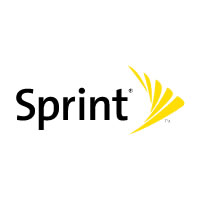
Sprint's 4G gets cheaper with Samsung Conquer 4G Android smartphone
Sprint and Samsung have announced the seventh 4G WiMAX phone, The Samsung Conquer 4G, which differentiates itself by being the first to launch with a sub-$100 pricetag.
Sprint debuted its first WiMAX phone (HTC EVO 4G) a little less than a year and a half ago, and the flagship device became Sprint's best-selling smartphone of all time. By the one year anniversary of the launch of the EVO, Sprint had launched a total of 22 WiMAX-capable devices which included netbooks, tablets, hotspots, USB modules, and, of course, smartphones.
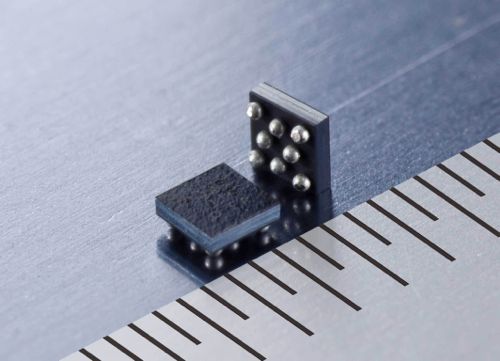
Yamaha shrinks smartphone magnetometer to 1.5mm
Smartphones come with dozens of sensors: gyroscopes, accelerometers, proximity sensors, ambient light sensors, barometers, and magnetometers, all for the sake of adding to the device's "situational awareness" without adding significantly to its size and weight.
Japan's Yamaha Corporation on Friday announced it has collapsed the size of its magnetometers by 56% to just 1.5 square millimeters, and claims to have created the world's smallest tri-band geomagnetic sensor for smartphones and tablets.

Hulu, Spotify, Etsy, accused of using invasive 'shadow tracking mechanisms'
Website analytics company KISSMetrics licensed out a technology to dozens of companies, including streaming media companies Hulu and Spotify, that let them implant a tracking tag in a user's browser history that could "respawn" if deleted. Now, the company and its licensees are being sued.
UC Berkley School of Law posted a study at the end of July that revealed the use of these persistent cookies.
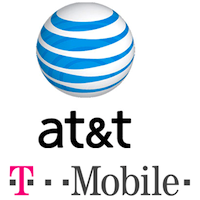
Holding out for AT&T, T-Mobile keeps customer losses in check
T-Mobile USA has been listed as a "discontinued operation" by its parent company Deutsche Telekom all year, and regulatory approval of the wireless provider's merger with AT&T is still pending, yet the number 4 wireless carrier in the US has managed to prevent mass customer flight.
On Thursday, T-Mobile USA posted its earnings report for the second quarter of 2011, revealing that it had $5.1 billion in net revenue, down from $5.2 billion in the first quarter. This figure represents all service contracts, equipment sales, and all other sources of income for the company, so T-Mobile continued to lose customers and sold fewer handsets in the quarter.

Clearwire says it will build LTE into its existent network, just like Sprint
Clearwire, the United States' only nationwide WiMAX network announced on Wednesday that it intends to add TDD-LTE to its catalog of services based on its existing 4G infrastructure. The announcement comes just one week after Sprint announced a similar plan with burgeoning LTE/Satellite network LightSquared.
Clearwire says it will initially implement LTE technology in urban areas on the infrastructure it built up for its 2.5GHz WiMAX 4G network, and eventually upgrade to LTE Advanced (currently known as 3GPP Release 10) when the technology is ready, and when funding is obtained.
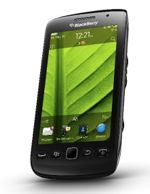
RIM unveils the first BlackBerry 7 smartphones
Canadian smartphone pioneer Research in Motion announced a refreshed product lineup with five new BlackBerry smartphones that will be the first crop of devices capable of running the new BlackBerry 7 OS.
RIM hasn't exactly been having the best time with BlackBerry recently. The formerly leading smartphone brand has been rapidly losing market share to Android and iOS, and the repeatedly delayed BlackBerry Playbook tablet has reportedly missed sales targets by a mile. RIM stocks lost over 50% of their value in the month of June, and most recently the company had to begin laying off 10% of its workforce.
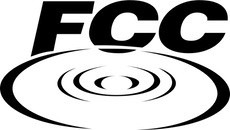
FCC says ISPs aren't lying about their advertised speeds
One year ago, the Federal Communications Commission began a widespread test of American broadband service providers to see if consumers were getting what they paid for.
It packaged together a handful of free network diagnostic tools that let users check the downlink/uplink speeds and latency of their broadband network provider and then submit it to the commission for review. It also launched a campaign called TestmyISP.com; and conducted a hardware-based test of wireline broadband performance with Whitebox maker SamKnows.
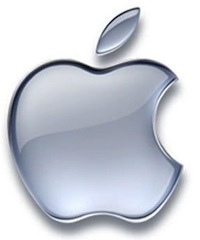
It's getting harder to reach Apple tech support, survey says
Apple's tech support ain't what it used to be, says Vocalabs, a company that measures customer satisfaction by interviewing customers immediately after service calls, retail store visits or IVR (automated) interactions. According to the company's report for the first six months of 2011, Apple continued to deliver better telephone support than HP and Dell, but its customer satisfaction dropped 15 points in one year.
"Apple has long had a reputation for exemplary service and support, and consistently tops rankings of service among consumer electronics companies. While the company is still ahead of the pack in many metrics, it has experienced a significant--in some cases precipitous--drop over the past year," Vocalabs' report says.

Laplink slashes PCmover to under $1 for businesses upgrading from XP
Windows XP still has a solid three years left before it reaches End of Support (EOS), the point at which the formidable desktop operating system will be forced into retirement.
On the 24th of this month, we'll be celebrating the 10 year anniversary of Windows XP's release to manufacturing, and even though it seems like it will be a "this is your life" kind of retirement retrospective, the operating system still has a massive userbase in the enterprise.
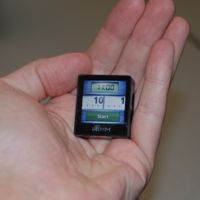
Introducing WIMM, the 1 inch Android wrist computer
This is the WIMM Wearable Platform (which, for the sake of simplicity, I will be referring to strictly as "WIMM" for the rest of this article.) It's a tiny Android-powered module that will be used someday soon in watches, bike-mount computers, wearable interfaces, and anything else a clever company can come up with. It's the product of WIMM Labs, an <!external href="http://www.wimm.com/about.html">all-star Silicon Valley company that has partnered with iPhone manufacturer Foxconn to usher in the era of the "first screen" and "micro apps."
The idea of the "first screen," WIMM Labs CEO and former Rambus president Dave Mooring told Betanews last week, is a response to all the other four screens that we interact with on a daily basis (TV, PC, smartphone, and now tablet). Technically, this would be the fifth screen, but it is intended to be the first one you look at.

